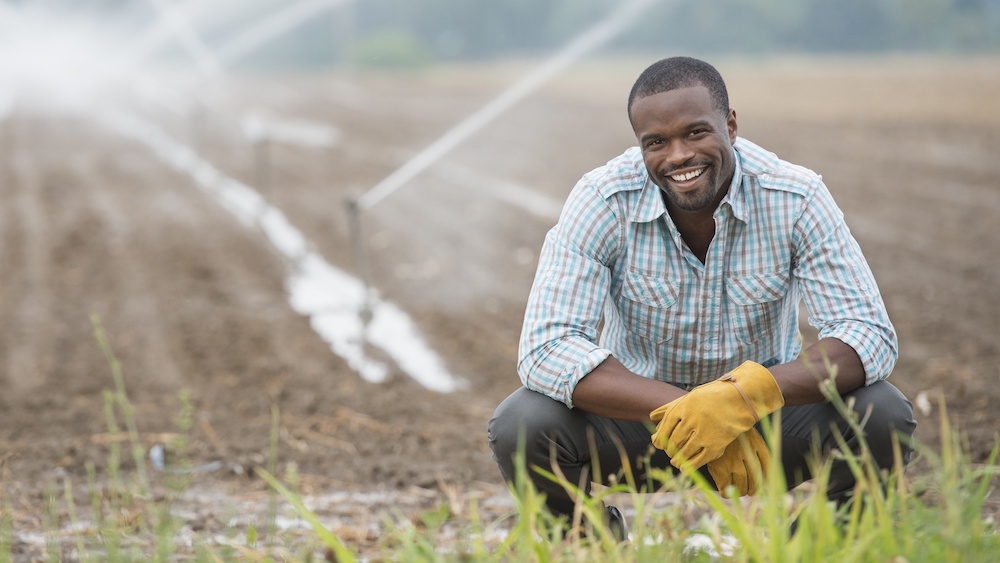If you’re interested in sharing your opinion on any cultural, political or personal topic, create an account here and check out our how-to post to learn more.
____
Written by Esha Chhabra
____
Two things remain difficult for Black farm and food entrepreneurs: Access to land and access to capital. David Haughton has been farming in upstate New York for over 20 years on 87 acres, 37 of which he owns. He specializes in apples and fruit trees, and the situation for small-scale Black farmers like him, he says, “has gotten worse, not better.”
A hundred years ago, Black farmers owned more than 16 million acres of land in the U.S.; today, they own less than 5 million acres. Black farmers are also underrepresented: Across the country there are only 36,000 Black farmers remaining. In New York State, where Haughton lives, they number under 200 amidst a total population of 57,000 farmers.
This inequity finds roots in lending and banking discrimination. In 2020, an analysis of USDA data showed that it provided 37% of Black farmers with requested loans compared to 71% of loans granted to white farmers.
This is not a problem limited to farming. Other Black food businesses also have a harder time accessing capital. Add to this the racial wealth divide where the net wealth of the average Black family is around one-tenth that of a white family and the challenges facing Black-led food and farm businesses are steep.
In 2017, two Black farmers and activists, Olivia Watkins and Karen Washington, came together at the Black Urban Growers conference, a one-of-a-kind meeting ground for Black farmers. It was here that the idea for Black Farmer Fund (BFF) took root as a first-of-its-kind community-governed investment fund exclusively devoted to Black farmers and food businesses.
“BFF is by us, for us,” says Melanie Allen, BFF’s program director. “Our community-governed model centers those with lived experiences in our decision making, as they intimately understand the issues Black entrepreneurs face. This shifts power and disrupts historically exclusive decision-making spaces and moves capital that is informed by the discrimination that Black folks have faced for generations.”
For example, instead of a traditional investment committee, BFF has organized a group of 12 Black farmers, business owners and organizers. Known as the Pilot Community, this group is determining investment guidelines and decisions with the aim to invest in food-related projects that push for economic justice, local job creation, and environmental and ecological restoration.
“We’re a strong community of like-minded folks,” says Pilot Community member Allison DeHonney, who leads Urban Fruits & Veggies/Buffalo Go Green, an urban agriculture business with an overarching mission to promote wellness in underserved communities. “As farm and food systems workers, we know we need to fix the broken, unjust and inequitable food system. This starts by addressing inequitable access to land and capital.”

This innovative model truly lives out inclusivity not just in the mission — to bring patient financing built around individual needs to Black food entrepreneurs — but in its execution as well. Pilot Community members, food entrepreneurs themselves, are deepening their financial knowledge as they navigate investment decisions, while supported businesses are engaged as co-designers in developing the financial support they receive — all while expanding financial access for Black farmers and food entrepreneurs.
To support this first round of investments, Black Farmer Fund is teaming up with national nonprofit Fair Food Network, which brings experience in creative financing and administration of its own impact investing arm, Fair Food Fund. Its financing team is advising BFF on individual loan terms, Fund structure and portfolio balance, supporting the decisions made by the Pilot Community.
Black Farmer Fund’s $1 million pilot fund, which attracted over 50 applications, is investing in eight farm and food businesses in this first cohort. Financed projects include Dave Haughton’s farm and others, like Farm Fresh Caribbean Growers, which specializes in vegetables from the Caribbean such as the leafy green callaloo; Big Dream Farm in Saugerties that serves West African Muslim communities in Westchester and NYC; the worker-owned co-operative Black Yard Farm that focuses on animal husbandry and vegetable production; and Rootwork Herbals, an herbal education business that concentrates on serving queer, BIPOC communities (Black, Indigenous, and people of color). While this round is centered around farmers and herbalists, BFF intends to support businesses across the entire food ecosystem — from farm to fork.
For Haughton, this has been a personal story. Growing up in Jamaica, he lived on 14 acres of farmland. He moved to the U.S. in 1988 and after a decade of tending to apple orchards, bought his own land in Clintondale, New York, which he paid off in less than a decade. Over the past 20 years, his attempts to find grants and other funding to improve his small farm have repeatedly been met with extractively high loan rates. “The funding is all designed to go to bigger farms, not small ones like ours,” he says.
Haughton is looking to use BFF support to intentionally expand his operation. Right now, it’s him and his wife Veronica and other family members looking after the orchards, tending to their animals, going to farmers markets, and managing business finances. Haughton’s goal is to harvest 100,000 bushels of a variety of apples each season, increasing his yield seven-fold.
He is already connected to community partners like Corbin Hill, a mission-driven business that provides produce boxes to underserved communities. During the height of the pandemic, all of Corbin Hill’s boxes featured Haughton’s apples.
Black farmers have the potential, just as any other farmer, Haughton argues: “Black farmers, yes we are still here, and we are real. We are working hard and trying to do it best we can. Come see us.”
